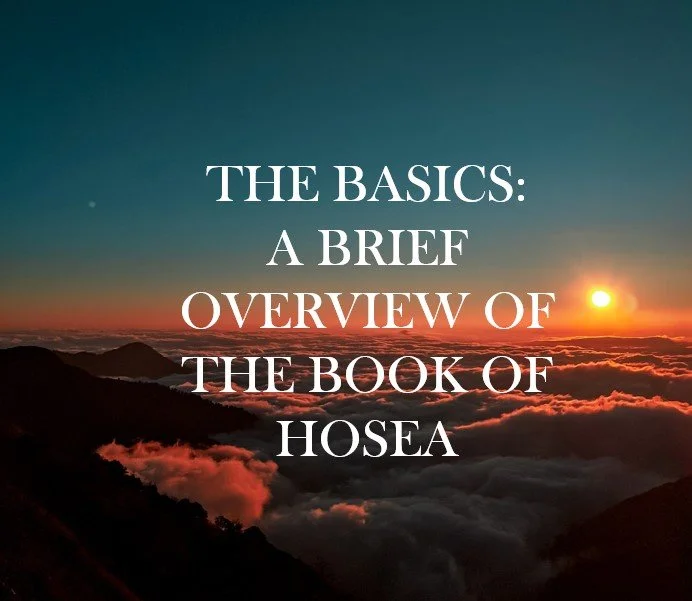RE-POST FRIDAY
A look back into the beginning of our study of Psalm 32!
A look back into the first part of our study of Psalm 32! Read it HERE!
God’s Deliverance
Come see the key found in John 3:16!
While we are just about finished with the first chapter of the book of James, I feel it is important to pause here and discuss what is occurring this Sunday with Easter. It is this time of year that we as born-again Christians need to reflect upon the cross and its importance. For us, this is the founding basis of our faith. If Jesus had not died on the cross for the sins of the world and been risen on the third day, then our faith would simply have nothing to stand on.
It is for this reason that we need to realize that the cross was not just where Jesus Christ was crucified, it was not just His to bear. The cross was meant for me, for you, and for all of humanity. The actions of the cross was God’s final nail in the coffin for sin separating those who would place their faith in Him. The cross represents for Christians God’s plan to redeem the entire world, and an important fact that Christians miss when reflecting on the cross is what the Son of God’s actions meant to God the Father. While the physical death on the cross was important, we cannot forget that the cross escapes the physical dimensions as we see them. Henry Blackaby describes it this way in his book “Experiencing the Cross”, “The cross transcends the physical dimension, and it also transcends time… just as the shadow of the cross reaches back into eternity, so it also thrusts forward.” The power of the cross transcends time. It is how we as believers today recognize others of our faith. Those who would deny the cross and the resurrection are simply not born-again believers. They are denying a foundational truth of the Christian faith.
We should be reflecting not only on the importance of the cross to our faith, but also why was it needed? Why would God have to send His Son to come to earth, only to die in probably the most horrific way at the time? Jesus Christ Himself teaches on the importance of the cross, “21 From that time on Jesus began to explain to his disciples that He must go to Jerusalem and suffer many things at the hands of the elders, the chief priests and the teachers of the law, and that He must be killed and on the third day be raised to life.” Matthew 16:21. This passage occurs after Peter declares that Jesus is the Son of the Living God (Matthew 16:16) and we see that in the very first time that Jesus Christ is talking about the coming crucifixion He is describing it as something that MUST be done. There was no other way for God to offer a path to restore lost mankind to Himself. This is not the actions of a cruel God, but one that loved the world enough that He would give up His only Son for us. “16 For God so loved the world that He gave His one and only Son, that whoever believes in Him shall not perish but have eternal life.” John 3:16. Many times when this verse is quoted people focus on the word “love”, I know that I certainly did and this is not something that is wrong to focus on. However, the true key word of this passage is actually “perish”. God gave His only Son so that none should perish. Without Christ, our only future is eternal condemnation. It is only by placing our faith in Jesus Christ and His actions on the cross for us that we are to be called children of God. Through Jesus Christ we now have hope in a God who would sacrifice His Son so that we may truly live.
I hope now you have a more focused aspect of what the cross means. It is something that transcends time and the results of Jesus Christ’s actions are still in effect today with every new believer that comes to call Him Lord. Because of God’s love for us, Jesus came to earth to die on a cross but to rise again so that He may purchase us from our sins. And the only thing that we must do is place our faith in Him! Without that, our only hope is to perish. But with Christ, our hope is in eternal life. If you ever have questions feel free to reach out to Mill House Ministries, we love to answer questions about the Bible, God, and our only salvation being Jesus Christ.
Seek the truth and encourage one another,
Alex
STOP AND REFLECT
What we as believers need to seriously do this week.
Each year it comes and goes. To churches it is ritualistic, to the outside world it is barely a holiday worth investing merchandise in. As Geoffrey Chaucer’s old saying goes, “Familiarity breeds contempt” here in the 21st century we could say, Resurrection Sunday or more commonly known as Easter has been turned into a quick drive by in the calendar date. This is unfortunate due to the entire premise of Christianity and humanity itself thrives on this Holy and solemn week. The history of man is divided by it; cultures, freedoms, and rights are founded by it, and even individual rescuing is sourced by what was cultivated this very week just over two thousand years ago. It can simply be put that this week in history has been forgotten, the reverence is lost, the potency has been deluded, and the very meaning has been handed over to a bunny. Some go to church out of a ritualistic sovereign duty to their family and those who have gone before them; they are there physically, but their thoughts are far away from the realization of what transpired all those years ago.
We need to take a time out and pump the brakes, we need to slow down and adjust what we are looking at. This week shouldn’t be a just any other week, nor should it be a week of rituals that we do with family, but rather an earnest and somber reflection of what Christ did for you and I.
This week identifies that we need faith alone in Jesus Christ, what He did on the cross, and who He is if we are to truly be saved from ourselves. Romans 4:5 states, “But to him who does not work but believes on Him who justifies the ungodly, his faith is accounted for righteousness.” This week distinguishes for humanity our chance at deliverance. Proverbs 10:14 states, “wise people store up knowledge,” for believers we need to continue to daily take our study of God’s Word seriously. For this week in particular, we need to earnestly review the familiar accounts of this Holy Week and treasure what God has done for us. Remember, without this week man is without hope, for Jesus Christ came to earth on a mission, to save the world from itself, He wants you and I to be saved. Earlier I said we have a chance at salvation, this chance is good for anyone no matter their past or present situation. We have been promised only this moment for salvation, thus if you have not accepted Christ I would implore you to ask Him into your life. If you are saved, take this week to reflect on the accounts of Jesus Christ and what He did for you and I. If you do not know where to start, read Leviticus 23, Isaiah 53, Matthew 21-28, Mark 11-16, Luke 19-24, John 12-21, and finally Hebrews 1-5. By reading these you will hopefully see a more specific picture of who and what Christ was really fulfilling. If you have questions or are in need of prayer, please let us know on the contact page. Finally, as this Holy Week in Christianity takes place, remember why Christ did what He had to do, it wasn’t for the eggs with candy but rather something much more valuable, John 3:16-17 “16 For God so loved the world that He gave His only begotten Son, that whoever believes in Him should not perish but have everlasting life. 17 “For God did not send His Son into the world to condemn the world, but that the world through Him might be saved.”
Hold until relieved our Blessed Hope is coming
JL
RE-POST FRIDAY
A review of the warnings found in the book of Hebrews!
Reviewing the fifth warning in the book of Hebrews! Read it HERE!
How Should We Respond to God’s Word?
How we respond to God’s Word shows where we place our priorities.
Last week we saw the truth behind were temptation comes from, we learned that it does not come from God but our own sinful nature and we were reminded of God’s goodness in what He does give. James continues his lesson by asking the reader to reflect upon their response to God’s Word and presents the reader with how they should be responding to God’s Word. James 1:19-21 shows what our response should be to His Word, as well as the reason for this response, and what it means to be receiving God’s Word.
“19 Know this, my beloved brothers: let every person be quick to hear, slow to speak, slow to anger; 20 for the anger of man does not produce the righteousness of God. 21 Therefore put away all filthiness and rampant wickedness and receive with meekness the implanted word, which is able to save your souls.”
James 1:19-22
James has an important lesson for the reader in this passage, one that is glossed over today and was probably not received well when James stated it. This is why he begins this section of his letter by calling the reader “beloved brothers”. He is recognizing what we are all commanded to do, and that is to correct and encourage fellow believers in the Word, “25 not abandoning our own meeting together, as is the habit of some people, but encouraging one another; and all the more as you see the day drawing near.” Hebrews 10:25. Therefore, James quickly identifies the response that we need to have to God’s Word, and that is to “let every person be quick to hear, slow to speak, slow to anger;” James 1:19b
The first response that James identifies is that every person should be quick to hear. This is similar to what Jesus Christ said after discussing the parable of the sowers, “9 Whoever has ears, let them hear.”” Matthew 13:9. The Bible is not meant for only a select few, but as shown by Jesus Christ, it is meant for everyone. James expounds upon this idea by saying that the lesson he is about to teach is for all of the beloved readers of his letter, no one is exempt from this.
To be quick to hear is to be eager and attentive. Before the Bible was brought together, the letters were read out loud to the congregation. They had to be attentive if they were going to hear what was being described. This is the exact opposite of many believers today who simply go through the motions of a Bible study or sit listening to a sermon while thinking of what they will have for lunch. It is through being attentive to the Word and actively listening that we are strengthened by it. “16 All Scripture is breathed out by God and profitable for teaching, for reproof, for correction, and for training in righteousness, 17 that the man of God may be complete, equipped for every good work.” 2 Timothy 3:16-17 It is the strength that we receive from being quick to hear that will deliver us from trials and temptations. Knowledge of God’s Word teaches us what is right and wrong and keeps our focus on God not on what is tempting us.
The next response that everyone should have when reading God’s Word is to be slow to speak. Often when a new letter was read, a debate would break out. Instead of giving thoughtful evaluation of what is being taught, people’s own biases would override. This is something that is still prevalent today, many people will read a passage that goes against their own ideas and instead of evaluating the meaning behind it they will simple quit reading. Or when a person is confronted by proof of their sin based on Scripture, they become angry and turn away. We may internally or externally argue with what the Bible says, but that does not make it any less authoritative or true. Instead, we need to be like those in Acts 17:11, “11 Now these people were more noble-minded than those in Thessalonica, for they received the word with great eagerness, examining the Scriptures daily to see whether these things were so.” When faced with an aspect that might cause us to become angry, we need to take a moment and evaluate the whole passage and pray that the Holy Spirit guides us and shows us the truth. Remember, we are called to be slow to speak when reading God’s Word. We need to intently study it, but remember that we need to hold our tongue until we understand what is being stated. “Sin is not ended by multiplying words, but the prudent hold their tongues.” Proverbs 10:19, “Whoever restrains his words has knowledge, and he who has a cool spirit is a man of understanding.” Proverbs 17:27
The third aspect that James is teaching goes hand in hand with the two previous ones. In order to hear God’s Word we must listen and examine it, if we allow our sinful nature to cause misunderstandings then we become angry at God’s Word. This is why James teaches that we must be slow to anger. We must not reject God’s Word, it is the ultimate authority and is infallible and true. One who shows anger at God’s Word is often being confronted by their sin and they do not wish to see it. The person who is slow to anger, even when confronted by sin, shows that they understand God’s Word. “One who is slow to anger has great understanding; But one who is quick-tempered exalts foolishness.” Proverbs 14:29. If we are angry at God’s Word, it is because it is revealing to us where our sins are. This scenario occurred in Acts 7:54-60 when Stephen confronted the men from the Synagogue of the Freedmen.
This is not to say that we cannot be angry on behalf of God’s Word, we just cannot be angry at His Word. Believe me there is a big difference. The one who is angry at God’s Word is the person we just discussed, the person who is angry on behalf of God’s Word is displaying righteous anger. This occurs when a person knows the Word, knows what it says about a certain topic, and becomes angry when they see actions that goes against God’s Word. Remember, God is a God of love but He is also a God of justice and wrath, “God is a righteous judge, a God who displays his wrath every day.” Psalm 7:11. A righteous anger is not sin, “26 Be angry and do not sin; do not let the sun go down on your anger,” Ephesians 4:26. If we cannot be angry at sin, then we cannot fight against it.
After identifying the response that we should have to God’s Word, James next shows the reason for this response. “20 because human anger does not produce the righteousness that God desires.” James 1:20. Our anger does not produce God’s righteousness. We should not allow sin to interfere with receiving God’s Word.
Instead of anger at God’s Word, there must be meekness. We must remove the sins that are preventing us from accurately hearing God’s Word, “21 Therefore, get rid of all moral filth and the evil that is so prevalent and humbly accept the word planted in you, which can save you.” James 1:21 In order for us to be able to receive the Word, we need to have a teachable heart. This allows the Scriptures to be implanted in our hearts.
Seek the truth and encourage one another,
Alex
The Basics: A Brief Overview of the Book of Joel
God declared significant events to happen, we can see how some have already come to pass while others are coming close!
The Basics course is designed to help brothers and sisters in Christ, who have a desire for a brief study over each of the books of the Bible. While being more than just a timeline, it is designed to give a person a more realistic overview of the entire Bible. As well as pointing out different highlights along the way. Imagine riding in a car and seeing exit signs for a town. Each sign gives a brief glimpse of what is inside, while if you wanted to thoroughly investigate the town you would have to take the exit. This series is a collected work of the books of the Bible while continuing to drive past each of the exits. I would encourage you to take any exit and allow the Lord God to direct your path to where He would guide.
The Bible is written into 66 different books. Each one unique on its own but designed to be with its other collected works.
Cautionary Note: This work is not to argue for the authenticity of the Bible nor is it to argue over the mechanics of how God used man to write His Words. This is designed as an overview for someone to review the book in passing. Nevertheless, we here at Mill House Ministries believe that the Bible is without error and was written by God, through His divine attributes, through man.
These overviews are sequenced in the below fashion. Each overview is designed to flow in unison.
1.) Introduction
2.) Who wrote it
3.) When did they write it
4.) Key topics
5.) Key sections
6.) Books that interact with each other
7.) Analysis of the Book
As previously stated, if you find yourself drawn to one of these books, please take the time and see what God is wanting to show you in that book.
BASICS COURSE:
Joel
INTRODUCTION:
Not much is known about Joel other than what is written in his book. But what we do know is, he probably knew or had heard of Elijah and Elisha. Like with the other 12 Minor Prophets, they are not so minor, and we encourage you to read our post on the why they are called Minor.
WHO WROTE IT:
The book of Joel is named after its author Joel.
WHEN DID THEY WRITE IT:
The timing that this book is written is during Joel’s own ministry which Biblical scholars, historians, and archaeologists have identified roughly around 760- 720 B.C. We have provided a quote here for references of a discussion regarding the date of the book of Joel.
“Dating the book relies solely on canonical position, historical allusions, and linguistic elements. Because of: 1) the lack of any mention of later world powers (Assyria, Babylon, or Persia); 2) the fact that Joel’s style is like that of Hosea and Amos rather than of the post-Exilic prophets; and 3) the verbal parallels with other early prophets (Joel 3:16/Amos 1:2; Joel 3:18/Amos 9:13), a late ninth century B.C. date, during the reign of Joash (ca. 835–796 B.C.), seems most convincing. Nevertheless, while the date of the book cannot be known with certainty, the impact on its interpretation is minimal. The message of Joel is timeless, forming doctrine which could be repeated and applied in any age.”[1]
KEY TOPICS:
The key topic of Joel is the day of the Lord. It is a detailed description of what God is planning on doing.
KEY SECTIONS:
The book has been divided up by many in different ways and under different scrutiny. In an attempt to review the material in writing of this post, I am still uncertain that it can be rightfully divided into sections. I believe depending on the study and what you are reviewing, the book of Joel is adaptable in its sectional review. I would argue that a good reader of God’s word should take into account sitting and reading the entire book and leaving no stone unturned to see where God might be leading you to understand and know.
BOOKS THAT INTERACT WITH EACH OTHER:
Joel is directly connected to the book of Acts and Revelation. Joel’s Pentecostal and apocalyptic references relate directly to both books. If you find this strange, don’t. Both books document events when God is acting in a mighty way for all to see. Joel is the announcement of His actions.
ANALYSIS OF THE BOOK:
While small, the book is powerful. Revealing God’s coming judgement on mankind but also what He plans to do with Israel and others. Here we see the promise of the Holy Spirit to those who are saved, but also the coming judgement for those who are not. Joel is a unique book that you can read for its prophetic context, but also its theological and societal relationship.
Hold until relieved, our Blessed Hope is coming,
JL
[1] Bible Introductions - Joel by John MacArthur (blueletterbible.org)
RE-POST FRIDAY
Advice for those who want a deeper relationship with Christ!
A piece of relationship advice for those who are born again believers! Read it HERE!
Where Do Temptations Come From?
Where does the source of temptations truly lie?
There is no doubt about it, life is hard. Challenges are faced every day, sometimes they are faced head on with grace while other times they are faced with less than ideal composition. During the difficult times, it can be tempting to say that we are placed in these situations by God, that He is tempting us. However, James once again, and in no uncertain terms, pokes a hole into this thinking.
“13 Let no one say when he is tempted, “I am being tempted by God,” for God cannot be tempted with evil, and he himself tempts no one. 14 But each person is tempted when he is lured and enticed by his own desire. 15 Then desire when it has conceived gives birth to sin, and sin when it is fully grown brings forth death. 16 Do not be deceived, my beloved brothers. 17 Every good gift and every perfect gift is from above, coming down from the Father of lights, with whom there is no variation or shadow due to change] 18 Of his own will he brought us forth by the word of truth, that we should be a kind of first fruits of his creatures.”
James 1:13-18
James does not mince words, and he cuts right to the chase regarding where temptations truly come from. James describes temptations as coming from inside our mind. This may seem out of place considering our last post on the trials of wealth and need, but it is not. James is connecting tests with temptations here because when we are placed under pressure on the outside (tests) if we are not following God, then we look for answers from inside our own mind. We begin to complain, doubt, and reject God’s Word and allow our minds to attempt to find a solution based upon our own desires.
The first important aspect that James states regarding temptations is that they do not come from God. “13 No one is to say when he is tempted, “I am being tempted by God”; for God cannot be tempted by evil, and He Himself does not tempt anyone.” James 1:13 Often times when we are faced with a temptation we tend to say that it is God who is tempting us. Verse 13 leaves little doubt that God tempts anyone, and yet we so often are like those who are mentioned in Proverbs 19:3, “A person’s own folly leads to their ruin, yet their heart rages against the Lord.” It is our own foolishness that leads us into temptation but we place the blame on God. On the other hand, God cannot be tempted by sinful desires. This is not a part of His nature “You who are of purer eyes than to see evil and cannot look at wrong,” Habakkuk 1:13. God has no capacity for sinful desires either, “5 This is the message we have heard from him and proclaim to you, that God is light, and in Him is no darkness at all.” 1 John 1:5 If we truly believe that the Word of God is perfect and irreputable, then this simple verse holds much sway in the argument that God tempts us. When presented with this verse it is best to rely on the old saying “when the plain sense makes sense, seek no other sense lest you find nonsense”
After pointing out that temptations do not come from God, James is quick to get to the root of the problem. Temptation comes when we are enticed and lured away from God by our own desires. This person is drawn away from God by something that they think is better, only to find out that they have left the safe harbor and are in unsafe waters. What is enticing them appears like such a good deal that they are not aware of the deadly consequences their actions will cause. Susan Heck in her book “In the School of Tested Faith” has a great explanation on the term used by James. “The word enticed means to be entrapped or caught. When we take the bait, we are surprised that we have been caught and cannot escape. Sin promises satisfaction and excitement. It lures and captures us and we are caught”
Proverbs seven is a great example of someone who is drawn away by sin. “For at the window of my house I have looked out through my lattice, 7 and I have seen among the simple, I have perceived among the youths, a young man lacking sense, 8 passing along the street near her corner, taking the road to her house 9 in the twilight, in the evening, at the time of night and darkness…. With much seductive speech she persuades him; with her smooth talk she compels him. 22 All at once he follows her, as an ox goes to the slaughter, or as a stag is caught fast 23 till an arrow pierces its liver; as a bird rushes into a snare; he does not know that it will cost him his life” Proverbs 7:6-9, 21-23 The young man in this proverb was found walking the street near the corner where this woman worked. She then persuades him to commit adultery with her. This man knew where she could be found, he was not avoiding it in fact he was searching her out. This is an example of the bait of sin. We each have an area of sin that we struggle with, and we know what situations will place us in temptation to follow through with that sin. However, if we do follow through with the temptation we will be just like the young man who does not understand that his act of sin will cost him his life.
James gives a very sobering description of what comes out of sin. “15 Then, after desire has conceived, it gives birth to sin; and sin, when it is full-grown, gives birth to death.” James 1:15 in this passage we actually see two births. The first is desire giving birth to sin. What starts with an internal desire then matures into an act of disobedience to God’s will. Again look at Proverbs seven. The young man saw what he wanted with the woman and did not think of the consequences. When we try to satisfy our desires outside of God’s will it becomes a sin. For example, eating is good, gluttony is not. We need to control our desires, not allow them to control us and this control only comes when we are in God’s Word and following His will. “3 For though we walk in the flesh, we are not waging war according to the flesh. 4 For the weapons of our warfare are not of the flesh but have divine power to destroy strongholds. 5 We destroy arguments and every lofty opinion raised against the knowledge of God, and take every thought captive to obey Christ, 6 being ready to punish every disobedience, when your obedience is complete.” 2 Corinthians 10:3-6
The second birth that we see is that when the sinful desires have been completed, it gives birth to death. I am not saying that the death here is a loss of our salvation, for those who are born-again cannot lose their salvation. However, the result of sin leads to a hurting our relationship with God. This injury makes it even more difficult to follow His will and the cycle continues. We aren’t following His will so we sin, we continue to sin because we do not know what His will is.
James does not leave the reader completely hopeless however. He reminds the reader to not be deceived by what the world tries to entice us with, instead to remember that “17 Every good gift and every perfect gift is from above, coming down from the Father of lights, with whom there is no variation or shadow due to change.” James 1:17 We need to keep our focus on God who is the author of every good thing. Everything that is good in this world came from God, He created it. Therefore when we receive something good, we need to acknowledge who it was who gave it to us. While sometimes the good in a situation may not be seen right away, such as when we are going through a trial, God has not forsaken us “For the Lord God is a sun and shield; the Lord bestows favor and honor; no good thing does he withhold from those whose walk is blameless” Psalm 84:11 James also points out that the way God gives is good. By reminding ourselves of His goodness, we can successfully walk past temptations much like Joseph did in Genesis 39. Another aspect that believers should focus on and remember when faced with trials and temptations is that God does not change, “6 “For I the Lord do not change; therefore you, O children of Jacob, are not consumed.” Malachi 3:6 and in Him there is no variation, “8 Jesus Christ is the same yesterday and today and forever.” Hebrews 13:8 This is a very good thing for believers because it means that God will complete His work in us, “ And we know that for those who love God all things work together for good, for those who are called according to his purpose.” Romans 8:28
Finally, just as James pointed out that sin brings forth death, he makes it clear that God brings forth life. “18 He chose to give us birth through the word of truth, that we might be a kind of first fruits of all he created.” James 1:18. This life comes from the word of truth. By keeping our foundation on Christ and what He offers rather than the world, we can overcome any situation that we are placed in. We are sealed to Him and cannot be drawn away, “13 In him you also, when you heard the word of truth, the gospel of your salvation, and believed in him, were sealed with the promised Holy Spirit,” Ephesians 1:13. We then receive a birth from above, look at the discussion that Jesus had with Nicodemus regarding being born-again which can be found in John 3:1-7. When we place our faith in Jesus, we receive the miracle of a spiritual birth.
Seek the truth and encourage one another,
Alex
The Basics: A Brief Overview of the Book of Hosea
Come see how God views sin, but also what He is planning to do about it!
The Basics course is designed to help brothers and sisters in Christ, who have a desire for a brief study over each of the books of the Bible. While being more than just a timeline, it is designed to give a person a more realistic overview of the entire Bible. As well as pointing out different highlights along the way. Imagine riding in a car and seeing exit signs for a town. Each sign gives a brief glimpse of what is inside, while if you wanted to thoroughly investigate the town you would have to take the exit. This series is a collected work of the books of the Bible while continuing to drive past each of the exits. I would encourage you to take any exit and allow the Lord God to direct your path to where He would guide.
The Bible is written into 66 different books. Each one unique on its own but designed to be with its other collected works.
Cautionary Note: This work is not to argue for the authenticity of the Bible nor is it to argue over the mechanics of how God used man to write His Words. This is designed as an overview for someone to review the book in passing. Nevertheless, we here at Mill House Ministries believe that the Bible is without error and was written by God, through His divine attributes, through man.
These overviews are sequenced in the below fashion. Each overview is designed to flow in unison.
1.) Introduction
2.) Who wrote it
3.) When did they write it
4.) Key topics
5.) Key sections
6.) Books that interact with each other
7.) Analysis of the Book
As previously stated, if you find yourself drawn to one of these books, please take the time and see what God is wanting to show you in that book.
BASICS COURSE:
Hosea
INTRODUCTION:
Not much is known about Hosea other than what is written in his book. But what we do know is that his life was on display to bring awareness to the relationship between God and Israel, and how Israel was being unfaithful to a faithful God. Like with the other 12 Minor Prophets, they are not so minor, and we encourage you to read our post on why they are called Minor.
WHO WROTE IT:
The book of Hosea is named after its author, Hosea.
WHEN DID THEY WRITE IT:
The time this book is written is during Hosea’s own ministry which Biblical scholars, historians, and archaeologists have identified roughly around 760- 720 B.C.
KEY TOPICS:
The key topic of this book is returning to an ever-faithful God. God loves you and I, and He is willing to let us go through the pain and sorrow we want to in order for us to finally come to the realization that He is what we really need and wish for.
KEY SECTIONS:
The book can be divided into two parts. Part one being chapters 1-3, which show how Hosea’s wife is unfaithful. Part two is chapters 4-14, which reveals Israel’s sin towards God.
BOOKS THAT INTERACT WITH EACH OTHER:
Hosea interacts historically with 1 and 2 Chronicles and Kings, but does have connection to Ezekiel and Daniel with the events that were unfolding. Hosea is writing during a time that other Old Testament prophets were also writing to Israel.
ANALYSIS OF THE BOOK:
Hosea is a book that points to the love that God has for His people Israel. For most of the world who are not of Jewish decent, it gives us a better understanding of God’s undying love for Israel but also reassurance that if He will not leave Israel than God will not leave you and I. The book also helps identify what it means for us to have idols in our own life, and how God thinks of it. A little sin to us is a BIG SIN to God. So, as you read through Hosea, take to heart the pain and frustration that God reveals when Israel is unfaithful to Him. But also see His earnest love and devotion to them, even when they reject Him. Hosea is a book of assurances that God promises to love us even when He reveals how disgusting our sin is in His presence. Finally, the book ends with a prophetic revelation of Israel returning to the Lord in the last days with chapters 13-14 refuting those who might claim that God is done with Israel.
Hold until relieved, our Blessed Hope is coming,
JL
RE-POST FRIDAY
A review of the warnings found in the book of Hebrews!
Studying the fourth warning found in the book of Hebrews! Read it HERE!
Biblical Financing
Money is a challenge for everyone, read what the book of James has to say regarding it!
There is no doubt that finances can turn into trials as well as temptations. In fact, there comes a time in every person’s life when they will be faced with the trial of want and the trial of plenty. The Bible has many verses dedicated to the handling of finances. The book of Proverbs is filled with it, and there are many who know the warning in Matthew 6 regarding money, “24 “No one can serve two masters; for either he will hate the one and love the other, or he will be devoted to one and despise the other. You cannot serve God and wealth.” Matthew 6:24. James also touches on the idea of finances in his Epistle. Today we are going to be looking at James 1:9-12 to see the response to their trial in the rich and the poor man.
“9 Now the brother or sister of humble circumstances is to glory in his high position; 10 but the rich person is to glory in his humiliation, because like flowering grass he will pass away. 11 For the sun rises with its scorching heat and withers the grass; and its flower falls off and the beauty of its appearance is destroyed; so also the rich person, in the midst of his pursuits, will die out. 12 Blessed is a man who perseveres under trial; for once he has been approved, he will receive the crown of life which the Lord has promised to those who love Him.”
James 1:9-12
Verse 9 almost sounds like a contradiction. How can a person of humble or lowly circumstances have a high position? Here James is calling on the persecuted Christian who most likely has lost their home and their material belongings to praise God. As we saw last week, when we face trials we are given an opportunity to grow in the Lord. This passage brings to mind that of the Israelites in the desert. They had been released from their captivity and were told that they would inherit a land of milk and honey. And yet, every step of the way they complained. They complained about the bitter water (Exodus 15:22-24), the lack of food (Exodus 11:4-6), the leadership (Numbers 14:1-3), you name it they complained about it. This is no different than us today who are caught up with “keeping up with the Jones’” we look at those around us and see what they have that we do not, and instead of praising God for what He has given us, we complain. Just like the Israelites, when we spend our time complaining rather than praising, we will not see God’s blessings that He has set before us. Instead of focusing on what we don’t have, we need to focus on what we do have. We are citizens of heaven where every good and precious thing stems from. Do not let your humble situation cause you to take your eyes of the Lord. Instead look around and see what He has blessed you with!
The book of Proverbs has many verses regarding financial advice, however, the verse that comes to mind when reading James 1:9-12 has always been Proverbs 30:7-9. ““Two things I ask of you, Lord; do not refuse me before I die: 8 Keep falsehood and lies far from me; give me neither poverty nor riches, but give me only my daily bread. 9 Otherwise, I may have too much and disown you and say, ‘Who is the Lord?’ Or I may become poor and steal, and so dishonor the name of my God.” This passage relates to this segment of James because it is showing the two responses that we have when we are faced with trials of want and trials of plenty. We see here that if we face the trial of want with the mentality of grumbling and trying to get more then what God has given us, we dishonor Him. We are not facing the trial with joy like we discussed last week. On the other hand, if we are in a trial of plenty, we run the risk of disowning God and all that He has done for us. This scenario is described in James 1: 10-11.
Where verse 9 sounds like a contradiction, the verses regarding the rich man almost seem harsh. After all, James is describing this man as someone who will wilt during trials. The reason for James is to use this terminology is because when we have plenty, we tend to have the idea that we earned it on our own merit and forget where all good and precious things come from. This is where the trial of plenty comes into play. Unlike during trials of want where we need to rejoice in what God has given us, during trials of plenty we need to humble ourselves to recognize who has given us these blessings.
The reason for the rich man to humble himself can be found in Jeremiah 9:23-24, “23 Thus says the Lord: “Let not the wise man boast in his wisdom, let not the mighty man boast in his might, let not the rich man boast in his riches, 24 but let him who boasts boast in this, that he understands and knows me, that I am the Lord who practices steadfast love, justice, and righteousness in the earth. For in these things I delight, declares the Lord.”” Here we see that the rich man should not boast in his riches but only in that he understands and knows the Lord. For a person to successfully go through a trial of plenty, they need to understand that it has nothing to do with them and everything to do with what God has given them. And just like the flowers and grass described in James 1:10-11, if they unsuccessfully place their riches upon themselves, God can take away what He has given.
With James comparing a rich man verses a poor man in response to what they have been given, it is important to notice one thing. It is not our physical riches that get us through trials, it is our riches in Christ. “6 But godliness actually is a means of great gain when accompanied by contentment. 7 For we have brought nothing into the world, so we cannot take anything out of it, either.” 1 Timothy 6:6-7. These verse highlight the fact that no matter what our situation may be, we need to glorify God. To praise Him through our trials is the only way that we can succeed in them. The rich man and the poor man are equal in one thing, they both need a Savior. “The rich and the poor meet together; the Lord is the Maker of them all.” Proverbs 22:2. To succeed in a financial trial, the Christian needs to remember that our material belongings on earth mean nothing, it is our richness in Christ that has true value. “19 “Do not store up for yourselves treasures on earth, where moths and vermin destroy, and where thieves break in and steal. 20 But store up for yourselves treasures in heaven, where moths and vermin do not destroy, and where thieves do not break in and steal.” Matthew 6:19-20. Yet do not misunderstand what God does. At times He will give you the financial gain, He could very well give you the bonus, the promotion, and a new position that brings with it more financial stability. This does not mean you are sinning or have somehow cheated the system, but God in His all-knowing self has orchestrated something particular for you to have these gifts. Just look at the rich men God has used over the years; Job, Abraham, Isaac, Jacob, Joseph, Solomon, Joseph of Arimathea, women disciples funding Jesus, and many others. All of these people were very rich, yet all would have and at times did give it up to follow God. God will use whomever He wants. It is up to us to recognize what He has given us and use it accordingly. The fact that God places so much emphasis on making sure we understand this indicates that man innately struggles monumentally with this. Instead of looking at others, we should look to Christ; no matter what He has given us, we should be following His guidance and using His blessings to their fullest extent.
Seek the truth and encourage one another,
Alex
Not So Minor After All
The Minor Prophets has a major misconception that needs to be discussed! Come see what appears to be small but packs a cosmic punch!
The Basics Course is continuing, but I realized I should probably help explain a rather large issue that many people tend to have regarding the next 12 books of the Bible. Typically called the Minor Prophets, they have regrettably been passed over by many for three reasons.
1) Misrepresentation by being labeled as “Minor.” No part of God’s Word should ever be viewed as minor. However, the prophets of Hosea through Malachi have been considered minor due to the length of their written documents. If you have ever seen a piece of dynamite or perhaps a grenade explode, you know that something quite small can be rather large in its impact. The splitting of an atom creates catastrophic results. These Minor prophets are writing about grand and devastating moments in history that impact the entire world.
2) The second misrepresentation is to think they have nothing for believers today. This is very wrong, for much of what these prophets are declaring are actually coming to pass today. While these books are historical in nature, they reveal for us God’s character and prophetic action which will come about in its due time.
3) Finally, the Minor Prophets point out that no matter the time frame, circumstances, or environment, there is no man that is without failure. Our sin does not come to fruition based on our situation, but rather because who we are. God’s Word points to a need for Jesus Christ to come and rescue us. The Minor Prophets help reveal the need for a Savior, but also provides the valuable information on how to identify the Messiah from the counterfeits. They help us understand what Jesus must do for Israel to finally come to the realization that their King is Jesus Christ.
So, as we continue going through these 12 books; please remember they are minor only in size of reading, not in textual information or quality of information. Paul reminds us “All Scripture is God-breathed and is useful for teaching, rebuking, correcting, and training in righteousness, so that the servant of God may be thoroughly equipped for every good work” 2 Timothy 3:16-17. So, dig into the Minor Prophets with the same vigor as you would any other book of the Bible, but remember the same rules apply.
Golden Rule Number 1. Pray for wisdom that God guides you in understanding and rightfully discerning His Word. It is the glory of God to conceal a matter, it is the glory for us to search it out. God loves to help you and I when we seek to know more about Him in His word.
Golden Rule Number 2. Scripture answers Scripture. Somewhere else in the Bible, is the answer to what you are pondering about in whichever passage you are reading.
Golden Rule Number 3. Context. Context, Context! Read it seriously. Ask yourself “What is the context of what is being read?”
Gold Rule Number 4. The original language knows best. As much as some might say that God’s Word is only KJV, NASB, or NIV, it is not. Go back to the original Greek and Hebrew!
Hold until relieved, our Blessed Hope is coming,
JL
RE-POST FRIDAY
Continuing the study of the time that the church is in!
A final look back into our series of the time that the church is in! Read it HERE!
Successfuly Navigating Trials
How do we navigate trials? The book of James offers great advice!
Last week we discussed the aspect of counting it joy when we are faced with trial. We know that we do not have an impartial God, He is actively with us and helping us in our trials. This week, as we continue to look at James 1:2-8, I want to discuss that if we are to successfully go through a trial, we need to know that our faith will be tested. “3 knowing that the testing of your faith produces endurance.” James 1:3 We can face a trial with joy because we know that a trial gives us the opportunity to become more Christ-like. Trials also separate the born-again believer from those who profess to be followers of Christ, we will discuss this distinction later. One thing that needs to be understood is that trials work for the believer, not against them, this can be seen in 2 Corinthians 4:17, “17 For our momentary, light affliction is producing for us an eternal weight of glory far beyond all comparison,”
But how can a trial be for our good? When we envision a trial, we see something that is difficult for us or something that is an annoyance. The second half of verse three shows that through trials we receive endurance. This is echoed in Romans 5:3-4, “3 Not only that, but we rejoice in our sufferings, knowing that suffering produces endurance, 4 and endurance produces character, and character produces hope,” We receive endurance when we remain steady in trials by leaning on God. Our trials produce a greater testimony for God’s grace and mercy. It is why reading the stories of those who faced and overcame trials in the Bible is so encouraging. We see how God worked through them and our faith grows. “4 For everything that was written in the past was written to teach us, so that through the endurance taught in the Scriptures and the encouragement they provide we might have hope.” Romans 15:4
The third aspect of going through a trial with joy is to “4 And let steadfastness have its full effect, that you may be perfect and complete, lacking in nothing.” James 1:4 We know that God does not put us through anything without a reason, we may not always know the why of the specific trial we are or have gone through, but we can be assured that God has meant it to give us endurance and a greater testimony. It is why we need to allow God to work through us when we are going through a trial. Imagine it this way, you have just received some bad news perhaps a sickness or a loss of job. For someone who is enduring this trial with joy they are keeping their focus on Christ, they are not sitting in a corner doing nothing. The outside world will see this individual and see how their behavior is pointing back to Christ.
The final aspect of having joy in a trial is to ask. “5 If any of you lacks wisdom, let him ask God, who gives generously to all without reproach, and it will be given him. 6 But let him ask in faith, with no doubting, for the one who doubts is like a wave of the sea that is driven and tossed by the wind. 7 For that person must not suppose that he will receive anything from the Lord; 8 he is a double-minded man, unstable in all his ways.” James 1:5-8.
This passage can be broken into three segments. The first is to ask in wisdom. Wisdom is the practical application of the knowledge that we have. One of the many characteristics of God is that He loves to grant wisdom to those who will ask and in verse five we see the word “generously”. This word means that God will give freely without any ulterior motive simply because it is in His nature to give. God loves to give good things to those who follow Him, “7 “Ask and it will be given to you; seek and you will find; knock and the door will be opened to you. 8 For everyone who asks receives; the one who seeks finds; and to the one who knocks, the door will be opened.9 “Which of you, if your son asks for bread, will give him a stone? 10 Or if he asks for a fish, will give him a snake? 11 If you, then, though you are evil, know how to give good gifts to your children, how much more will your Father in heaven give good gifts to those who ask him!” Matthew 7:7-11.
Wisdom also allows us to understand how to use our trials and circumstances for God’s glory, a topic that will be discussed in a later post. When we are faced with trials we need to ask for wisdom so that we do not waste the opportunities that God is giving us to mature or to be a witness to others. I highly encourage you to read a chapter of Proverbs a day if you not already, it is a great book that is filled with much wisdom and it conveniently has a chapter for each day of the month.
The next way that we can ask is to ask in faith. The rest of the passage describes a double-minded person, this is a person who follows the Lord when it is easy but still desires the things of this world. They are not leaning on the Lord for every situation, good or bad and instead are relying on the world to fix their problems. We have already seen the consequences of doubt when we discussed Peter walking on water in Matthew 14:22-33, but the Bible has other examples of what it means to be a double-minded person. Ephesians 4:14 calls us to no longer be children who follow any idea that seems biblical, “14 so that we may no longer be children, tossed to and fro by the waves and carried about by every wind of doctrine, by human cunning, by craftiness in deceitful schemes.”. We need to remember that we have a God who is bigger than what we are facing and there is no problem to big or small for Him, it is why John 14:13-14 states, “13 And whatever you ask in My name, this I will do, so that the Father may be glorified in the Son. 14 If you ask Me anything in My name, I will do it.”
Finally, I want to leave you with a reminder. We will face trials, there is no getting around that, but our reaction will determine the outcome. We can be like the double-minded man and fail, or we can lean on God and go through our trial with the joy of knowing that He is working through us and producing endurance for the faith. However, if we fail to lean on the Lord and instead whine about our trial that we are facing, we will often end up repeating it. We are called to do all things without whining, “14 Do all things without grumbling or disputing,” Philippians 2:14 In our current world, we need more people who respond to trials with joy and leaning on the Lord.
Seek the truth and encourage one another,
Alex
The Basics: A Brief Overview of the Book of Daniel
Come see how a prisoner had such an impact in the world today!
The Basics course is designed to help brothers and sisters in Christ, who have a desire for a brief study over each of the books of the Bible. While being more than just a timeline, it is designed to give a person a more realistic overview of the entire Bible. As well as pointing out different highlights along the way. Imagine riding in a car and seeing exit signs for a town. Each sign gives a brief glimpse of what is inside, while if you wanted to thoroughly investigate the town you would have to take the exit. This series is a collected work of the books of the Bible while continuing to drive past each of the exits. I would encourage you to take any exit and allow the Lord God to direct your path to where He would guide.
The Bible is written into 66 different books. Each one unique on its own but designed to be with its other collected works.
Cautionary Note: This work is not to argue for the authenticity of the Bible nor is it to argue over the mechanics of how God used man to write His Words. This is designed as an overview for someone to review the book in passing. Nevertheless, we here at Mill House Ministries believe that the Bible is without error and was written by God, through His divine attributes, through man.
These overviews are sequenced in the below fashion. Each overview is designed to flow in unison.
1.) Introduction
2.) Who wrote it
3.) When did they write it
4.) Key topics
5.) Key sections
6.) Books that interact with each other
7.) Analysis of the Book
As previously stated, if you find yourself drawn to one of these books, please take the time and see what God is wanting to show you in that book.
BASICS COURSE:
Daniel
INTRODUCTION:
The Persian officer stretched his back looking out over the palace balcony, he watched the starlight twinkle and the rooftop glisten with torchlights being lit by the locals. Behind him, men stand waiting for the host of the meeting to arrive. Some grumbled, while others waited in silence. For him it was always a moment of wonder. How could a captured Judah prisoner from the once great Babylonian empire come to such heights and respect? When his own Persian Empire had captured Babylon, he had thought all advisors would have been executed, and some had been. Yet, this one wasn’t. This Judah prisoner was no longer a prisoner, in fact it had been many years since anyone had thought of him in such a manner, and most just knew him as the King’s most old and trusted advisor. This old man stood in power and prestige, and he did it without a single hand of mischief, deceit, or even treachery to his own people. It was as if a divine hand was upon his very actions. The Persian locals called him “Lion Tamer” after he walked out of the lion’s den, however personally the officer knew him as a trusted advisor. Anyone who had a question or needed advice knew who in the palace to go to. If the Lion Tamer was guilty of anything, it was his dutiful prayer life. His God must have truly thought he was something special. Suddenly, the officer’s thoughts were pulled back into the room when the door opened. The men around the table all stood at attention waiting for the final arrival to come sit first. Once they all sat down, the room was silent as the old man looked at each one at the table with a soft smile. It was the officer who finally broke the silence, “Well Daniel, what are the orders from the King?”
WHO WROTE IT:
The book of Daniel is named after its author, Daniel.
WHEN DID THEY WRITE IT:
If there is one book of the Bible which has had more argument regarding the date, it would be Daniel. Due to the intricate prophecies discussed in the book, many scoffers believe it is impossible for it to be written where it claims. Nevertheless, according to Biblical scholars, archaeologists, theologians, and historians Daniel was indeed written around 606 B.C and was finished by the same author in 536 B.C. As we will discuss, the date this book was written is foundational to so much more.
KEY TOPICS:
The book of Daniel is a book describing the rest of human history through the eyes of the Jewish people. It is here that God outlines His master plan on what will happen before the coming of Jesus Christ to reign for 1,000 years. It is here that Daniel prophecies the exact date that Jesus would come the first time to Jerusalem and present Himself as King, but only to be rejected. Daniel does more than just give details of the Jewish nation, but also gentile nations and people that wouldn’t show up for hundreds of years such as Alexander the Great, Cleopatra, Antiochus IV, Anti-Christ and so many more. The book is a marvelous pronouncement of the coming Messiah, Jesus Christ.
KEY SECTIONS:
To break this book into sections would be an injustice to the reader. But rather, I would guide you to undertake the book carefully to review the information as Daniel intended it to be. The book should be taken seriously, with the topic being discussed by Daniel taken to other scripture for its continuity. Do not read Daniel and attempt to interpret it based solely on one verse or even two, but rather the circumference of Biblical cohesion.
BOOKS THAT INTERACT WITH EACH OTHER:
There is not a book of the Bible that does not have some relevance to or from the book of Daniel. To best understand Daniel, like Revelation, one must study the rest of scripture to see what God has declared.
ANALYSIS OF THE BOOK:
Out of all the books of the Bible, Daniel is my favorite. Daniel is a man on fire for God but proves we can stand for Jesus and work in this world. For Christians today who claim we need to hide in communities and run far away to where we believe we will not be persecuted, they should read Daniel. For those who do not know human history, you should read Daniel. If you want to know what is going to happen to Israel, read Daniel. If you want to see how much God is not reckless with His love, read Daniel. If you want to understand how much the Devil hates Israel and those who would seek Jesus, just read the book of Daniel. Daniel is a book that if read seriously, you will be naturally drawn to wanting to know more about the Jewish people, the coming Messiah, and what is to come shortly upon the earth. The book of Daniel is so precise with world events, that those who oppose the Bible have tried to discredit it. Because if they cannot discredit the book of Daniel, it means that God is in charge and understands what is going to happen and there is a coming day where Jesus will reign. Daniel is a critical book for any believer in Jesus to study, but it is also a foundational book for those living today to understand what is happening around the world. Daniel, like Revelation, if read and studied should excite the born-again believer! What was promised as signs of Jesus soon return are starting to manifest itself. Daniel is a key book for any believer to have in their pocket to reflect on how we should interact in this world, the spiritual world, and how we should be expecting Jesus.
Hold until relieved, our Blessed Hope is coming,
JL
RE-POST FRIDAY
A review of the warnings found in the book of Hebrews!
A look back into the third warning found in the book of Hebrews! Read it HERE!
Joy in Trials
How can we find joy in trials? Come and see!
Now that we have a better understanding of who James was and why the book was written, we need to discuss some of the topics that the book of James contains. Since James is writing to encourage individuals to grow and be mature in the faith, it hits on some very confrontational topics. To mention a few, James discusses trials, wealth, temptation, works, the damage a tongue can do, and wisdom. These are all topics that come about as a person is growing in their faith. One thing that I have always appreciated about James is that he is very straight to the point. Right after his introduction, which as we discussed last week glosses over that he is the brother of Jesus Christ and instead is focusing on James being a bondservant to Christ, James goes right into the topic of trials.
“2 Count it all joy, my brothers, when you meet trials of various kinds, 3 for you know that the testing of your faith produces steadfastness. 4 And let steadfastness have its full effect, that you may be perfect and complete, lacking in nothing. 5 If any of you lacks wisdom, let him ask God, who gives generously to all without reproach, and it will be given him. 6 But let him ask in faith, with no doubting, for the one who doubts is like a wave of the sea that is driven and tossed by the wind. 7 For that person must not suppose that he will receive anything from the Lord; 8 he is a double-minded man, unstable in all his ways.”
James 1:2-8
When I read this passage, there were four things that immediately stood out to me when we are faced with trials. First, we need to count our trials with joy. Second, we need to understand or know why we are faced with trials, then we need to let endurance work through us, and finally we need to ask God when we are in trials. Understanding these four aspects allow the Christian to grow in maturity in their faith, it is how we are to succeed in our trials.
The first point is to count our trials. This does not mean to physically count how many trials we have faced, instead we need to “2 Count it all joy, my brothers, when you meet trials of various kinds,” Counting is an evaluation term, these means that when we are faced with trials we need to evaluate what God is doing through us and what He is trying to teach us.
To face a trial with joy is not something that comes easily. Too often people complain about whatever trial they are facing. The issue with this is that it does not allow for the Christian to grow, it keeps them stunted. There is one aspect of being a Christian that is constant, we are not promised an easy life. We need to understand that it is not “if” but “when” we will fall into trials. Many people have the idea that by being a follower of Christ they will somehow avoid the pains of this life. Nowhere in the Bible is this promised, in fact this verse alone shows that we will face trials. What makes the Christian unique, is that when we are faced with trials we have the undeniable hope in Jesus Christ. “33 These things I have spoken to you so that in Me you may have peace. In the world you have tribulation, but take courage; I have overcome the world.” John 16:33
One thing that facing a trial with joy does not mean is that we are not to put on a fake smile. When we are faced with a trial we should not act as if nothing is wrong or try to make ourselves a martyr, we need to keep our focus on Christ and what He could be doing through us. When reflecting on a trial I am reminded of our Lord and Savior on the cross. He had asked God the Father to remove this trial from Him if it was His will, Luke 22:42a. However, through His obedience to God the Father’s will by saying “Nevertheless, not my will, but yours, be done.” Luke 22:42b, Jesus Christ brought salvation to the world. We know that Jesus did not face the cross with a smile, but He faced it knowing that the end result would be something great. “2 fixing our eyes on Jesus, the pioneer and perfecter of faith. For the joy set before him he endured the cross, scorning its shame, and sat down at the right hand of the throne of God.” Hebrews 12:2
Do not forget that God understands what we are going through! He isn’t a million miles away but rather He is with us. This is powerful for us to understand when it comes to encountering trials. What is so unique about God that James and others in the Bible display, is the incredible detail that God has placed in revealing His presence and support for us while we are in these trials. For those who are searching for how to count a trial as joy, just take into consideration that God is right there helping you and providing you with exactly what you need in order to come out on the other side.
Seek the truth and encourage one another,
Alex
Acting On God’s Word
An update for our Monday posts for the Spring.
I wanted to write a quick post today regarding a small transition in my spring line up of posts. As you might know, in the fall we were doing the “Basics” a simple systematic study of the books of the Bible. We stopped for the Holidays to discuss the birth of Christ and have since started the book of 1 John. We will continue to do 1 John but will take the next few weeks to finish the Old Testament in the Basics course. After which we will continue in our study of 1 John. The reason I am wanting to do this is for three principles.
1) As believers we should know the Bible in its entirety. “Every word of God proves true; he is a shield to those who take refuge in him” Proverbs 30:5.
2) We need to recognize what is going on in the world and reflect on what God’s word says so that we can know how to interact with those who might not know Jesus. “Everyone then who hears these words of mine and does them will be like a wise man who built his house on the rock” Matthew 7:24. This gives us the opportunity to reveal what God says in a practical manner. For those who listen to the Word and see how it can be applied in today’s circumstances will also find themselves with joy, peace, and an overall sense that God is in control of their life.
3) Many believers are being told things that are plainly not Biblical. We want to give you a road map to be able to review the material and see where God is calling you to go deeper. “But seek first the kingdom of God and his righteousness, and all these things will be added to you” Matthew 6:33.
God cares for the believer, and we are to be smart in the circumstances we find ourselves in. Jesus says this in Matthew 10:16, “But seek first the kingdom of God and his righteousness, and all these things will be added to you.” We as believers in Jesus Christ, are currently in a kingdom that is not of our heavenly Father’s. We are ambassadors in this foreign land. We are to be wise as serpents, knowing what to say and what not to say. We are to be as gentle as doves, knowing how to best help those around us and reflect God’s love to all. So, for the next couple weeks we will finish the Old Testament and then we will pick up 1 John in the summer. By doing this, when we reference something in 1 John you will know what book of the Bible we are talking about. As for the New Testament, we are currently praying about how best to do the Basics course and when we should. Nevertheless, I want to end on reflecting on the core principles on why we are doing this. Here at Mill House Ministries, we do our best to decide on posts, Bible topics, and ideas that are Biblical and Christ centered. Our goal is to equip you with the Word of God so that you can know Jesus Christ as we do and be eagerly awaiting on Jesus Christ.
Hold until relieved, our Blessed Hope is coming,
JL
RE-POST FRIDAY
A study on what time the church is in!
A continuation of our study in the time that the church is in! Read it HERE!
Who Is James?
We begin our look into the book of James by discussing who the author is and his significance.
One thing that shocked me when I first became a believer, besides how wholly incompetent I was to be good enough to save myself, came when I realized that Jesus Christ actually had siblings. This was something that had never been taught to me the times that I did go to church and I had the assumption that He was an only child. However, when you look at Matthew 13:55 you clearly see that Jesus did in fact have half siblings,“55 Is this not the carpenter’s son? Is His mother not called Mary, and His brothers, James, Joseph, Simon, and Judas?” In fact, it was one of these half-brothers who wrote the book of James, which is where I am wanting to go next with our study. But before we begin the study into the book of James, I feel it is important to understand who exactly he was.
As mentioned above, James was the half-brother to Jesus, the child of Mary and Joseph. However, in spite of having the Son of God as his older brother, James did not at first believe that Jesus Christ was the Messiah, “After this, Jesus went around in Galilee. He did not want to go about in Judea because the Jewish leaders there were looking for a way to kill him. 2 But when the Jewish Festival of Tabernacles was near, 3 Jesus’ brothers said to him, “Leave Galilee and go to Judea, so that your disciples there may see the works you do. 4 No one who wants to become a public figure acts in secret. Since you are doing these things, show yourself to the world.” 5 For even his own brothers did not believe in him.” John 7:1-5. James is a great example of those who have the head knowledge of how to be saved but have never had that personal relationship with Jesus Christ as Lord and Savior. James lived with Jesus, was around for his ministry, and yet did not believe. Through James, we see that if we have godly parents, godly spouses, or godly friends it does not make us a Christian. Without personally repenting of our sins and asking Jesus Christ to forgive us, we will not enter the kingdom of God, we cannot get there based on our relationship to anyone or anything else.
Unlike with Saul, who became the Apostle Paul, we don’t have a record of when this disbelief moved to a saving faith in Jesus Christ. What we do know about James is after he received this faith, James became the leader of the church in Jerusalem once Peter was released from prison (Acts 12:17) and chaired the Council of Jerusalem (Acts 15:13). James was a deeply prayerful man who was on his knees so often that his knees grew calloused. And his introduction in James 1:1 shows more of his character, “James, a bond-servant of God and of the Lord Jesus Christ” James 1:1a. James does not mention that he is the brother of Jesus, showing his humility in acknowledging that he is a bond-servant meaning that he was devoting his obedience and loyalty to Jesus Christ.
Through reading the book of James, you can see that he was a man who desired for the church to grow in the Lord. He also did not sugar coat issues in the church, something we will see as we begin our study. He did not ask people to change, he demanded it. He was practical in his writing, James didn’t just tell people that they needed to be wise, but showed how to discern wisdom from folly.
Now that we understand a little more about who James was, I feel it is important to discuss why he wrote the book of James. “To the twelve tribes who are dispersed abroad: Greetings.” James 1:1b. James intended his letter for Christian Jews who were scattered outside of Jerusalem. James was writing to them because they were being tested and facing temptations to sin. In short, they were failing to live up to what they professed. The Jewish Christians were living for the world, not controlling their tongues, and were disobeying God’s Word. These are all issues that are still prevalent in the church today, this is why I believe that the book of James need to be studied. James was dealing with an issue then that is common today, spiritual immaturity. We do not have enough churches and church members coming together to grow one another. We either have churches who refuse to do Bible studies or small groups or we have individuals who believe that Sunday morning is the only amount of nourishment that they need for the week. Therefore, we have Christians who lack the ability to defend what they believe and are incapable of guiding others in their faith with Jesus Christ, they are failing to be as Proverbs states, “As iron sharpens iron, so one person sharpens another.” Proverbs 27:17. As we begin our study in the book of James, I hope this study will highlight areas that need growth.
Seek the truth and encourage one another,
Alex

































